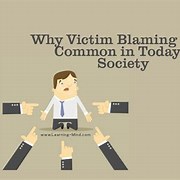Introduction:
Victimology is a multidisciplinary field that focuses on the study
of victims of crime, their experiences, needs, and interactions with
the criminal justice system.
Victims of crime often endure physical, emotional, and financial harm, and their voices and perspectives are critical in shaping responses to crime and promoting justice and support. This essay provides a comprehensive exploration of victimology, examining its theoretical foundations, research methodologies, key concepts, responses to victimization, contemporary issues, and challenges.

Theoretical Foundations of Victimology:
Theoretical frameworks in victimology provide insights into the dynamics of victimization and the factors that contribute to individuals becoming victims of crime. Several key theoretical perspectives in victimology include:
- Victim Precipitation Theory: This theory posits that victims may contribute to their victimization through their actions, behaviors, or characteristics. It challenges the traditional notion of victims as passive and blameless, highlighting the role of victim behavior in shaping the dynamics of criminal encounters.
- Lifestyle and Routine Activities Theory: This theory focuses on the role of routine activities and lifestyle factors in shaping the risk of victimization. Individuals with lifestyles that involve frequent exposure to potential offenders are more likely to become victims of crime.
- Routine Activities Approach: Building on lifestyle and routine activities theory, this approach emphasizes the convergence of suitable targets, motivated offenders, and absence of capable guardianship in facilitating criminal opportunities and increasing the likelihood of victimization.
- Social Disorganization Theory: This theory examines the impact of neighborhood characteristics, such as poverty, unemployment, and social disorganization, on crime rates and victimization patterns. Communities with weak social bonds and high levels of deprivation are more vulnerable to crime and violence.
Research Methodologies in Victimology:
Research in victimology employs various methodologies to examine victimization patterns, risk factors, consequences of victimization, and responses to victimization. Some of the key research methodologies used in victimology include surveys and questionnaires, interviews and focus groups, case studies and ethnographic research, and longitudinal studies.

Key Concepts in Victimology:
Victimology encompasses various key concepts that inform our understanding of victimization, including victimization patterns, risk factors, consequences of victimization, and victim-offender relationships.
A. Victimization Patterns:
Victimization patterns refer to the distribution and frequency of crime victimization across different populations, geographic areas, and types of offenses. Demographic factors, geographic patterns, and types of offenses influence individuals’ risk of victimization.
B. Risk Factors for Victimization:
Risk factors for victimization encompass individual, situational, and environmental factors that increase individuals’ vulnerability to becoming victims of crime. Identifying risk factors can help target prevention efforts and interventions.
C. Consequences of Victimization:
Victimization can have profound physical, emotional, and financial consequences for individuals and communities. Victims may experience trauma, fear, anxiety, depression, and post-traumatic stress disorder (PTSD), as well as financial losses and disruptions to their daily lives.
D. Victim-Offender Relationships:
Victims and offenders may have various types of relationships, ranging from strangers to intimate partners or family members. Understanding victim-offender relationships can help identify patterns of victimization and inform responses to crime.

Responses to Victimization:
Responses to victimization encompass a range of criminal justice system responses, victim services and support, and restorative justice approaches aimed at addressing the needs of crime victims and promoting their rights and well-being.
A. Criminal Justice System Responses:
The criminal justice system plays a central role in responding to victimization through investigation, prosecution, adjudication, and punishment of offenders. However, victims’ experiences within the criminal justice system may vary, and they may face barriers to accessing justice and support.
B. Victim Services and Support:
Victim services and support organizations provide a range of services to assist victims in coping with the aftermath of crime, including crisis intervention, counseling, advocacy, legal assistance, and financial assistance. These services aim to empower victims, enhance their safety, and facilitate their recovery.
C. Restorative Justice Approaches:
Restorative justice approaches focus on repairing the harm caused by crime and addressing the needs of victims, offenders, and communities through dialogue, restitution, and community involvement. Restorative justice processes aim to promote healing, reconciliation, and accountability.
Contemporary Issues and Challenges in Victimology:
Victimology faces various contemporary issues and challenges, including victim blaming and stigmatization, secondary victimization, and the rights and advocacy of crime victims. These issues highlight the importance of addressing systemic barriers and promoting victim-centered approaches to justice and support.
A. Victim Blaming and Stigmatization:
Victims of crime may experience victim blaming and stigmatization, where they are held responsible for their victimization or subjected to negative stereotypes and attitudes. Victim blaming can undermine victims’ credibility, discourage reporting, and perpetuate cycles of violence and injustice.

B. Secondary Victimization:
Secondary victimization occurs when victims encounter negative or harmful responses from others, such as law enforcement officers, healthcare providers, or the media. Secondary victimization can retraumatize victims, exacerbate their distress, and deter them from seeking help or support.
C. Victim Rights and Advocacy:
Victims’ rights and advocacy efforts seek to promote the rights, dignity, and well-being of crime victims and ensure their voices are heard within the criminal justice system. Victims’ rights laws, victim impact statements, and victim compensation programs aim to empower victims and enhance their participation in the legal process.
Conclusion:
Victimology is a dynamic and interdisciplinary field that seeks to understand the experiences, needs, and rights of individuals who have been victimized by crime. By exploring victimization patterns, risk factors, consequences of victimization, victim-offender relationships, responses to victimization, and contemporary issues in victimology, this essay highlights the importance of promoting victim-centered approaches to justice and support. Addressing the challenges and barriers faced by crime victims requires collaboration, advocacy, and systemic reforms to ensure their rights are respected, their voices are heard, and their needs are met.



